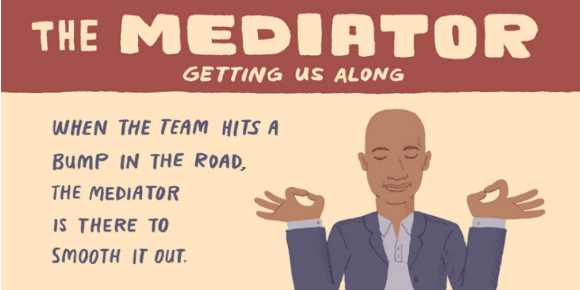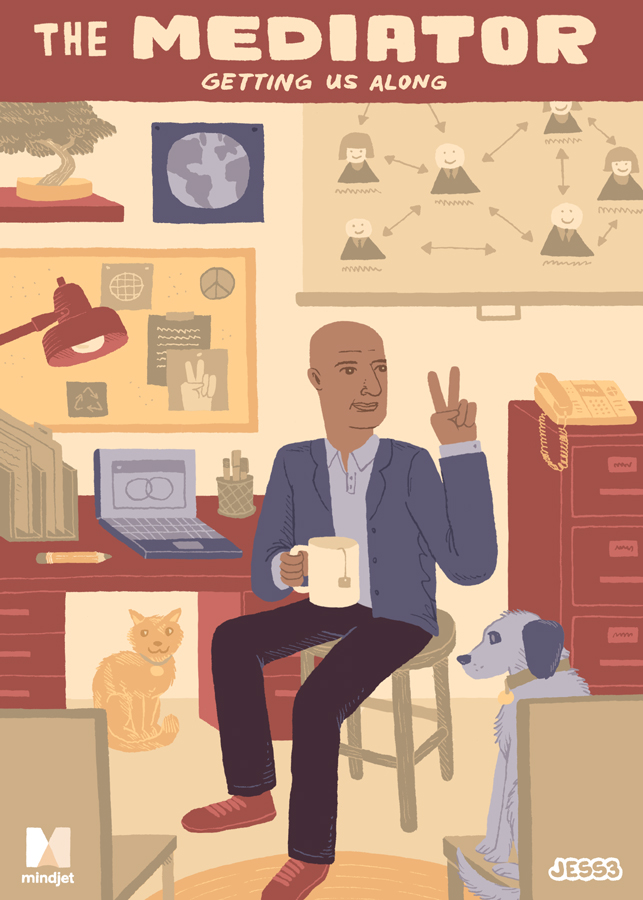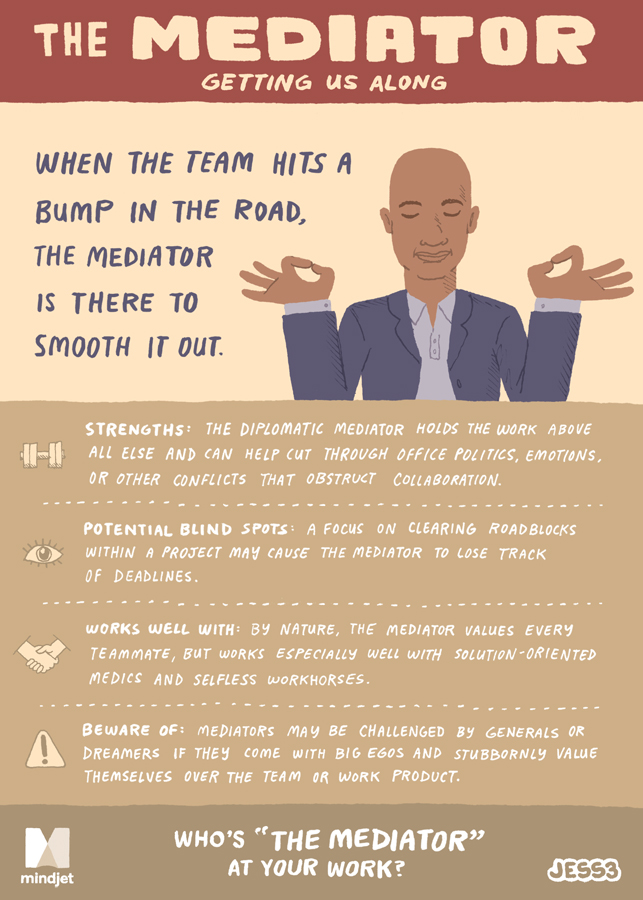Making the most of your work day can be a challenge. Mindjet’s Workology series will help you work smarter and more effectively with your workmates by introducing you to—and providing keys to working with—some common personality types found in any office.
Meet Matthew Heist: Heist is the president of High Gear Media, a web company focused on the automotive marketplace, with a portfolio of three prominent auto-oriented websites. Heist is a car fanatic. And he’s also a consummate Mediator, who’s managed to put people first as he grows his company.
Unlike more autocratic Generals, Mediators, says Heist, value diplomacy. His people savvy helps him instill a high level of loyalty among his employees. “If you look at the history of the teams I’ve built and the length of time people have been on these teams, and what they’ve gone on to do, I think it builds loyalty and a lack of drama that other approaches may not have.”
It comes naturally for Mediators in their roles as Teamworkers, according to the Belbin Self-Perception Inventory, which organizes individuals into team roles based on their strengths. That means they’re great at smoothing over conflicts and calming frustrated employees. Teamworkers want to make sure everyone’s voice—whether they’re an Artist, a Medic, or a Workhorse—is heard.
Heist enjoys being hands-on and collaborative, and values those traits in others. “I love people who are intellectually curious, who don’t have to have the steps of everything written out, but instead can noodle and go off on their own,” he says. And being a hard worker, willing to put the hours in to get the job done, doesn’t hurt either.
According to Myers-Briggs Type Indicator personality expert Christine Damrose-Mahlmann, Mediators are often ENFPs (extraversion, intuitive, feeling, perception). “They ‘get’ people’s feelings. They want to be around those who care for others,” she says. Naturally intuitive and considerate, ENFP Mediators are “the individuals who make sure everyone is heard in a meeting.”
But, as Heist himself admits, there are problems with the Mediator approach. After all, how do you ensure that everyone is heard when your company continues to grow in size? “As the team goes from a few people to 20 or 30 or 40, there’s only so many hours in the day,” he says. “You do have to delegate and you don’t get to have the constant contact you’re used to having with everyone.”
Plus, says Damrose-Mahlmann, Mediator types aren’t always skilled at choosing one side over others, which may be why Mediators struggle to get along with Generals. “I have not responded as well to the more autocratic leadership style,” continues Heist, who prefers people who “show a kind of willingness to learn the subject matter—to get down and dirty with it—so that when decisions are made, they’re made from a fully formed perspective.”
Still, Heist’s Mediator personality makes him a valued leader to his team—and that’s just the way he likes it. “As a Mediator, you’re not just a cheerleader but you’re willing to do the work with them.”



